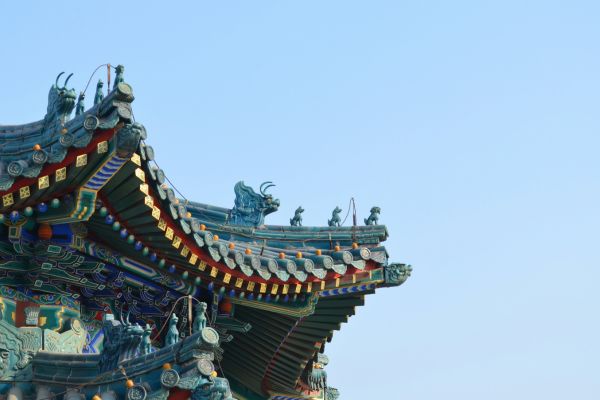
Yes, AI-created works can be copyrighted under Chinese law, just like those created by human beings. In a recent case, a local court in Shenzhen provided this clear position for the first time in China.
The judgment was made by Shenzhen Nanshan District People’s Court in Shenzhen Tencent Computer System Co., Ltd. v. Shanghai Yingxun Technology Co., Ltd. ((2019) Yue 0305 Min Chu 14010) ((2019)粵0305民初14010號) on 25 Nov. 2019.
I. Significance
In the judgment, the court ruled that the news written by Dreamwriter, an AI writing assistant software of the Plaintiff, was under the protection of copyright law. The Defendant infringed upon the copyright of the Plaintiff by copying the news.
The whole process in which human beings develop an AI writing assistant and use it to automatically generate articles constitute the creation of works.
This is the first time a Chinese court has heard a copyright dispute involving AI-created works, and also the first time to confirm the copyright thereof.
II. Basic Information
The Plaintiff: Shenzhen Tencent Computer System Co., Ltd. (深圳市騰訊計算機系統有限公司
The Defendant: Shanghai Yingxun Technology Co., Ltd. (上海盈訊科技有限公司)
Case Type: disputes over ownership of and infringement on copyrights
III. Case Overview
The Plaintiff is the right holder of Dreamwriter, an AI writing assistant software.
On 20 Aug. 2018, the Plaintiff published an article titled “Afternoon Comment: Shanghai Stock Index Rose Slightly by 0.11% to 2671.93 points, led by communications operations, oil exploration and other sectors” (hereinafter “the article”) on its website “Tencent Securities”. The article stated in the end that “this article was automatically written by Tencent Robot Dreamwriter”.
The article was produced in the following method. The Plaintiff used the software Dreamwriter to collect and analyze the text structure of stock market financial articles. Based on the needs of different types of stockholder readers, the Dreamwriter formed the article structure according to the Plaintiff’s unique expression wishes. Then it uses the stock market data collected to complete the writing and publish the article in 2 minutes after receiving the data (that is, 2 minutes after the end of the stock market).
Afterward, the Defendant published an article with the exact same title and content on its website “House of Online Loan”, and even with the same endnote “this article was automatically written by Tencent Robot Dreamwriter”.
The procedures of Dreamwriter are as follows: (1) collecting and analyzing data; (2) writing after the trigger conditions are met; (3) smart proofreading; (4) automatic distributing the articles to Plaintiff’s various article platforms.
In the above process, the input of data types and the processing of data formats, the setting of trigger conditions, the selection of article frame templates and the setting of the corpus, and the training of intelligent verification algorithm models are all selected and arranged by relevant personnel of the Dreamwriter development team.
IV. Court’s opinion (holding)
Under Article 2 of the Implementing Regulation of the Copyright Law(著作權法實施條例), “works” as stated in the Copyright Law shall refer to the original works of literature, arts, and sciences with intellectual results that can be reproduced in a tangible form. Article 3 stipulates that “the creation of works” as stated in the Copyright Law shall refer to the intellectual activities directly related to the production of works of literature, arts, and sciences.
The focus of the case was whether the article produced by Dreamwriter was a “work” under copyright law and whether the generation process was “creation”.
The court found that the arrangement and selection of the data input, trigger conditions setting, as well as the template and corpus style selection of the Dreamwriter development team, were intellectual activities that were directly related to the specific expression of the article.
Indeed, if the creative process was interpreted as (and limited to) the only two minutes for Dreamwriter to automatically generate the article involved in the case, no person had involved. It was only the result of the computer software running the established rules, algorithms, and templates.
However, Dreamwriter’s automatic operation is not for no reason or self-consciousness. The way that the software runs automatically reflects the choice of the Plaintiff’s development team.
From the analysis of the generating process of the article, its expression is determined by the individual arrangements and selections of the relevant personnel of the Plaintiff’s development team. The expression is not one and only, but is original to a certain extent.
In summary, it is both the expression of the article and its creation process, featuring and depending upon the individual selections and arrangements of the creators (namely, the Plaintiff and its Dreamwriter development team), and the generation of Dreamwriter, that satisfied the protective requirements under the copyright law. Therefore, the court held that the article involved was copyrighted as a written work under China’s Copyright Law.
In other words, the creation of the article and ordinary written works differ in the following way:
(1) For ordinary works, the author makes a decision on how to create while creating the work, that is, creativity and creation are synchronized.
(2) For the article involved in this case, the author first decides on how to create (i.e. to develop Dreamwriter software); and then create works as needed afterward, that is, creativity and creation are not synchronized.
In essence, however, Dreamwriter’s articles are still original works formed in human intellectual activities.
Photo by Brett Jordan (https://unsplash.com/@brett_jordan) on Unsplash
Contributors: CJO Staff Contributors Team









